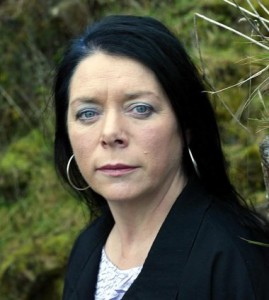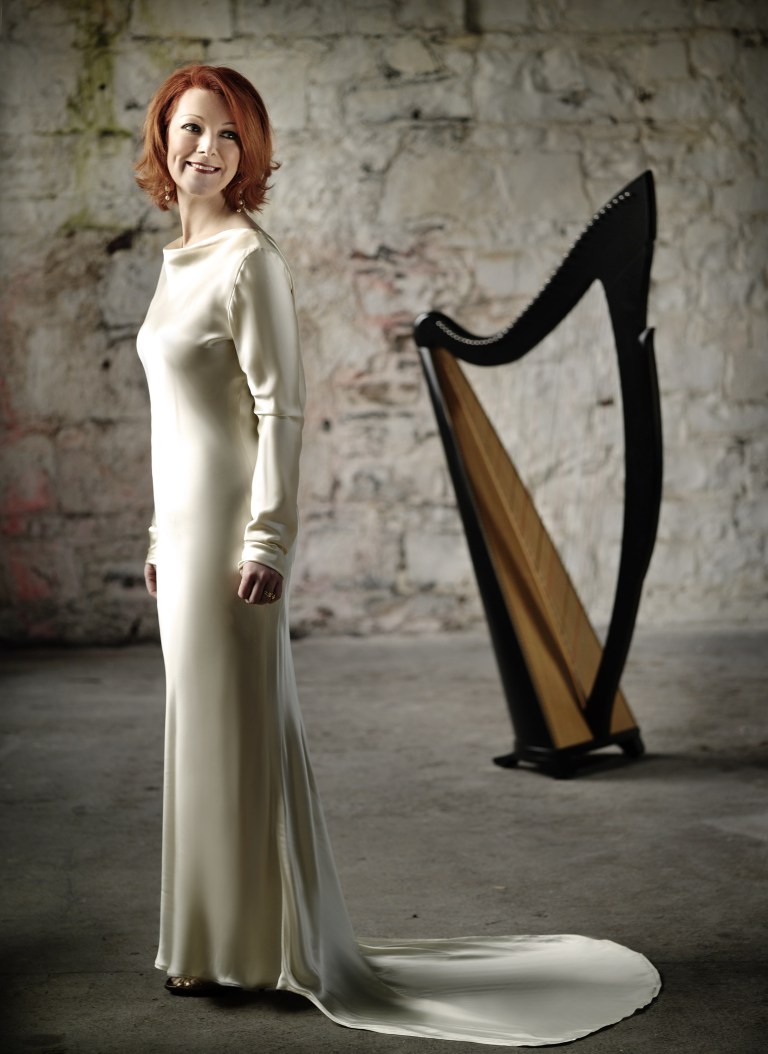It doesn’t happen often, but sometimes you meet someone who makes you suspect you were separated at birth. You laugh at the same things, love the same music, have so much in common that it’s a little like meeting. . .yourself.
That’s how Grammy-winning vocalist Susan McKeown felt when she met trad singer Mary McPartlan last summer in a café in Miltown Malbay, where they were both attending Willie Week, the annual Willie Clancy Summer School music festival.
“We only chatted a few minutes but we talked so much we planned out our next five years,” laughs McKeown, who was born in Dublin but now lives in New York. “We had so much in common.”
One of those plans was to work together someday, and they are. The women, considered two of the finest Irish traditional singers today, will be appearing for the first time together at the The Irish Center in Philadelphia on Saturday night.
Although McKeown won her Grammy for her work with The Klezmatics—singing Klezmer music, the Yiddish version of Irish trad—she and McPartlan are both steeped in Celtic folk. In their brief encounter, they also discovered that they both love the music of Mali, the western African nation, and have a penchant for weaving the music of other lands with the tunes of their roots. They both also have a theatrical background. McKeown graduated from the American Musical and Dramatic Academy in New York, and for the last dozen years McPartlan has been a producer and director of numerous music and theatre projects, many for TG4, Irish language television.
They also learned that they loved each other’s music. “There is something deep and honest about Mary’s voice that appeals to me,” says McKeown. “When I first heard her, she reminded me of [singer] Dolores Keane. She has very soulful voice that seems to tap into the past.”
McPartlan—whom I caught up with by phone as she was cooking supper for her family in Galway—has heard that comparison before and was pleased to hear McKeown thought so. “I love Dolores Keane,” she says. “She’s been a massive inspiration.”
McPartlan is a relative late-bloomer in Irish music. Though she began singing in the 1970s, she didn’t decide to make music a career until 2003. “My life was totally taken up with my job—working in the arts–and rearing my kids (she has four, two in their 20s and two teenagers),” she explains. “It was a very demanding time and I pulled back from solo performance. The fact that I’m a professional producer of the arts and especially music kept me spending a lot of time in the company of musicians and being involved in making music programs kept me going.”
While in the midst of a time-consuming project that kept her away from home for weeks, she says, “I made a tape of my songs for a lift.” She gave the tape to her good friend, piper Paddy Keenan, and asked him what he thought. “He said, ‘Mary, quick, go get a producer,’ which I did and I’ve never looked back.”
Her first CD was “The Holland Handkerchief,” which debuted to critical acclaim in January 2004. But her burgeoning new career was almost derailed: That same year, McPartlan was diagnosed with breast cancer. “I struggled with the breast cancer treatments and went on stage whenever I could,” she says. “But I never gave up. I think that music healed me faster than anything ever could.”
At the same time, she was also studying for her master’s degree. While it sounds like the perfect storm for stress, her performances and studies provided a welcome distraction from doctor’s visits and radiation treatments, she says. Four years after her diagnosis, McPartlan released her second CD, “Petticoat Loose,” which contains some interesting collaborations between McPartlan and a variety of musicians, including a Romanian string quartet.
Like her new friend, McKeown is musically adventurous. Her Grammy came for “Wonder Wheel,” a collection of Yiddish music (with lyrics by American folk musician Woody Guthrie) she performed with the Klezmatics. “Now you might think that Yiddish and Irish songs had nothing in common, but it’s not such a great leap as you might think,” she says “The tunes are so vibrant and exuberant, as they are in the Irish tradition, and they also tap into the same great sadness and depth of emotions.” They are, after all, songs born of love—and pining–for a homeland.
McKeown was born in Dublin, the fifth of five children. “The story is told that my parents had four children, none having a talent for music, so they had a fifth child, me. My aunts told me this. My mother was an organist and an entertainer at social events, and I always sang with her. So she was struck lucky the fifth time. We used to go around in the car together singing, doing harmonies, singing everything—religious music, popular music, the Beatles—whatever was on the radio.”
Her passion for singing was fueled by “winning medals in competitions—I liked that,” she laughs. “I was always asked to sing at religious events in school and I always got parts in the school musicals.” She went to college in New York with a scholarship and toured Europe with a group of Irish musicians with whom she released a cassette called “The Chanting House.” While in New York, she collaborated with musicians like Seamus Egan (Solas) and Eileen Ivers. The release in 1995 of “Bones,’ which features McKeown’s take on traditional Irish keening (caoineadh)—the poetic, emotional crying over the dead—led to her solo career. Like McPartlan, she is entrenched in traditional Celtic music, but she also writes her own tunes and employs musical elements of other cultures in her work.
“I’ve worked with a number of Malian musicians, quite frequently the kora player Mamadou Diabate,” she says. The kora, she explains, the is African version of the harp, a stick plunged into a gourd with 21 strings, sounding remarkably like the Irish harp. “I worked with the Malian Ensemble Tartit, me sitting on the ground with 12 of them, men and women, playing instruments, clapping, singing.” The music was remarkable, but McKeown also remembers it as a moment of motherhood magic. “I had my daughter, Roisin, with me. She was a baby and still nursing Another Mali singer, Mah Damba, got a big piece of cloth and tied it on me like those baby snugglers they sell, and she was asleep in a few minutes.”
Both McKeown and McPartlan expect some magic moments on Saturday night. “We’ll probably be doing the set list as we come down in the van,” McKeown jokes. “And it will be the first time we’ve ever heard each other live. Sure, and we only just met for five minutes!”
Those five minutes make McPartlan believe the magic will last. “I really think Philadelphia will be the nucleus f what I hope will be great, exciting, creative things to come.”
Susan McKeown and Mary McParlan will be performing at the Irish Center, Carpenter and Emlen Streets in the Mt. Airy section of Philadelphia, on Saturday, January 10, at 8 PM.


